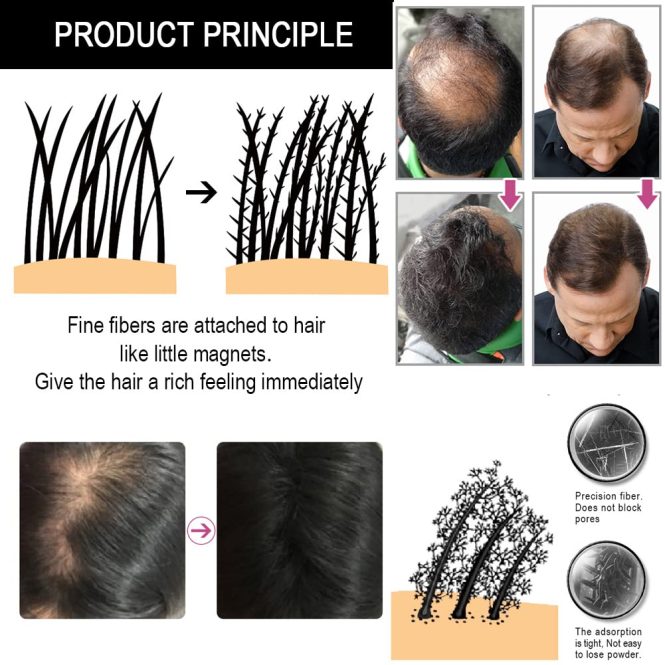

Hair loss and self-esteem are deeply intertwined. Experiencing thinning hair can significantly impact a person’s self-perception, leading to emotional distress and decreased confidence. This guide delves into the complex relationship between hair loss and self-esteem, providing valuable insights and practical strategies for managing both the physical and emotional challenges. We’ll examine common causes, explore effective treatments, and provide actionable steps to rebuild confidence, promoting emotional well-being. The structure of this article includes an introduction, a detailed examination of causes and treatments, practical tips for building confidence, a concluding summary, and answers to frequently asked questions, ensuring a comprehensive resource for navigating this journey.
Understanding the Connection Between Hair Loss and Self-Esteem
The Impact of Hair Loss on Self-Image
Hair loss, a common experience affecting people of all ages and genders, can have a significant impact on self-image and overall well-being. For many individuals, hair represents a crucial aspect of their identity and beauty standards. Thinning hair can lead to feelings of insecurity, self-consciousness, and a diminished sense of self-worth. Experiencing noticeable changes in hair can trigger anxieties about appearance, leading to emotional distress and impacting daily life.
Psychological Impact of Hair Loss
Beyond the physical changes, hair loss can induce profound psychological implications, negatively impacting mental health and self-esteem. Low self-esteem often manifests as feelings of inadequacy, depression, and anxiety. Social isolation can result from feelings of shame and fear of judgment, further exacerbating the challenges associated with hair loss. The psychological distress associated with hair loss can significantly affect a person’s ability to engage in social interactions and pursue life goals, leading to diminished overall quality of life.
Common Causes and Risk Factors
Numerous factors contribute to hair loss, making it important to explore the root causes to better tailor an effective treatment strategy. Genetics, hormonal imbalances, medical conditions, and stress are all common causes. Age, lifestyle, and nutritional deficiencies can also play a role in hair loss patterns. Exploring these causes helps in determining the most suitable course of action for regaining healthy hair.
Available Treatment Options
Thankfully, numerous treatments are available, from lifestyle modifications to advanced medical interventions, to help combat hair loss and restore confidence. Discussing options with a dermatologist or healthcare professional is essential for determining the most suitable path based on individual needs.
Effective Treatments for Hair Loss
Medical Interventions for Hair Restoration
Exploring available treatments is a key component of addressing hair loss effectively. A variety of medical interventions can help restore hair growth and density, providing viable solutions for individuals experiencing hair loss. These solutions range from topical medications to surgical procedures, and they can be tailored to specific needs. For example, topical minoxidil solutions can stimulate hair follicles, while platelet-rich plasma (PRP) therapy can promote hair regrowth by boosting blood circulation to the scalp. In some cases, surgical procedures such as hair transplantation can restore fuller hair coverage. It’s essential to discuss the pros and cons of each option with a medical professional to determine the best approach.
Building Confidence After Hair Loss
Lifestyle Changes and Emotional Support
Building confidence requires a holistic approach that addresses both physical and emotional aspects. Implementing healthy lifestyle habits such as stress reduction techniques, maintaining a balanced diet, and getting sufficient sleep can contribute to overall well-being and help manage hair loss effectively. Encouraging healthy coping mechanisms, such as practicing mindfulness or seeking support from loved ones and support groups, can also contribute to improved emotional resilience and self-confidence.
Acceptance and Self-Care
Embracing your individuality, accepting the hair loss journey, and prioritizing self-care routines are key aspects to enhance confidence. Developing positive self-talk, celebrating personal achievements, and focusing on inner well-being are all vital steps in regaining confidence. Consider incorporating beauty regimens that emphasize self-care, such as healthy scalp treatments and hair styling techniques that highlight personal beauty and confidence. Finding a trusted friend, family member, or support group can also play an important role.
Embracing Your Uniqueness
Ultimately, recognizing that you have an important role to play in your own well-being, and emphasizing your uniqueness, is important to overcome hair loss and embrace change with grace. This approach promotes a sense of self-acceptance, reducing the emotional pressure associated with hair loss and promoting inner strength and confidence.
Managing Hair Loss Stigma and Societal Pressure
Addressing Societal Perceptions
There’s often a stigma associated with hair loss. Understanding and challenging these negative societal perceptions is crucial. Openly discussing hair loss with friends and family can help demystify the issue and reduce feelings of isolation. Supporting one another in embracing individuality can create a more supportive environment, lessening the pressure and shame associated with hair loss.
Practical Tips for Overcoming Self-Consciousness
Develop proactive strategies to combat self-consciousness and maintain confidence. A wide range of hair care practices and styling options can be explored to improve your outward appearance, regardless of the extent of your hair loss. For example, hairstyles like ponytails, braids, or hats can help disguise thinning hair or reduce visibility. If possible, consider adopting practical solutions to alleviate concerns.
The Role of Professional Guidance
Seeking Expert Advice
Seeking guidance from a professional is a crucial component in managing hair loss effectively. A dermatologist can provide accurate diagnoses, discuss treatment options, and recommend tailored solutions based on individual needs, concerns, and hair loss patterns. This professional guidance provides clarity and a personalized approach, ultimately facilitating a successful recovery journey.
Importance of Therapy and Support Groups
Beyond medical expertise, engaging with therapists or joining support groups can be instrumental in addressing the emotional and psychological implications of hair loss. A supportive environment can help individuals process feelings of insecurity, develop healthy coping mechanisms, and foster emotional resilience. Talking about their concerns, understanding others’ experiences, and learning helpful tools for dealing with emotions can provide emotional support to improve their mental well-being.
Frequently Asked Questions
What are the most common causes of hair loss?
Hair loss can stem from various factors, including genetics, hormonal changes, stress, underlying medical conditions, and nutritional deficiencies. Genetic predisposition is often a significant contributing factor, but environmental factors and lifestyle choices can also play a role. Consulting a dermatologist is essential for a proper diagnosis and determining the specific cause in each case.
Are there any effective treatments for hair loss?
Fortunately, several treatments are available for addressing hair loss, ranging from topical medications to surgical procedures. Topical applications, such as minoxidil, can stimulate hair follicles, and other treatments, like PRP therapy, can improve blood circulation to the scalp, potentially promoting hair regrowth. Further, surgical procedures like hair transplants can be considered to restore hair coverage. It’s vital to consult with a qualified dermatologist to evaluate the appropriate treatment options based on individual circumstances.
In conclusion, addressing hair loss and its impact on self-esteem requires a multifaceted approach. Understanding the causes, exploring effective treatments, and actively building self-confidence are crucial steps. Seeking professional guidance from dermatologists and therapists can empower individuals to navigate this journey effectively. Remember, embracing your individuality and celebrating your beauty, regardless of hair condition, is key. Now, take the next step and reclaim your confidence. Schedule a consultation with a dermatologist today!